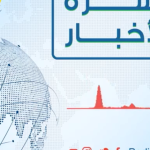
The United Nations: 90% of the Syrian refugees in Lebanon live in extreme poverty
90% of the Syrian refugee families in Lebanon live in extreme poverty due to the accelerating economic collapse that it has been witnessing since the beginning of this year, according to a study issued by the United Nations.
The results of a study conducted by the United Nations High Commissioner for Refugees, the World Food Program and the United Nations Children’s Fund (UNICEF) showed that “the economic downturn, severe inflation, the spread of the Covid-19 epidemic and finally the Beirut explosion have pushed vulnerable communities in Lebanon, including Syrian refugees, to the edge of the abyss.”
Lebanon estimates that there are 1.5 million Syrian refugees on its territory, about one million of whom are registered with the High Commissioner for Refugees, and these people live in difficult humanitarian conditions, exacerbated by the economic crisis that was deepened by the outbreak of the new Corona virus and then the explosion of Beirut Port.
The study showed that the percentage of Syrian refugee families now living under the line of “extreme poverty” reached 89 percent in 2020, compared to 55 percent last year.
These families live on less than 308,728 Lebanese pounds per person per month, which is equivalent to 205 dollars according to the official exchange rate and about 38 dollars according to the black market rate.
In a statement, the organizations stated: “9 out of 10 Syrian refugee families in Lebanon are currently living in extreme poverty.”
The representative of the High Commissioner for Refugees in Lebanon, Mireille Girard, said: “The situation of Syrian refugees in Lebanon has been deteriorating for years, but the results of this year’s study are a dramatic indicator of how difficult it is for them to survive.”.”
She added, “The refugees are today facing the most difficult winter for them up to date in Lebanon, with scarce resources that are not sufficient for them to enjoy warmth and safety.”
Half of the Syrian families surveyed are food insecure, compared to 28 percent in 2019. The number of families dependent on insufficient food systems has also doubled from 25 percent in 2019 to 49 percent in 2020.
The study showed that these families resort to several methods of adjustment, including early marriage of children, removing them from school or sending them to work.




